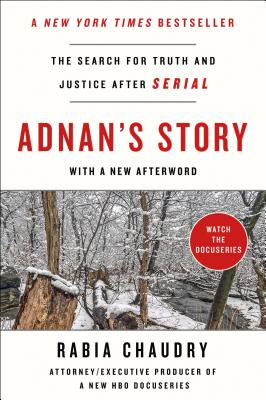
description
n prison, Adnan Syed's murder conviction was overturned, and he was finally set free. Rabia Chaudry's New York Times bestseller and award-winner Adnan's Story reveals how the case was mishandled and became the subject of Sarah Koenig's Peabody Award-winning podcast Serial. In early 2000, Adnan Syed was convicted and sentenced to life plus thirty years for the murder of his ex-girlfriend Hae Min Lee, a high school senior in Baltimore, Maryland. Syed has maintained his innocence, and Rabia Chaudry, a family friend, has always believed him. By 2013, after almost all appeals had been exhausted, Rabia contacted Sarah Koenig, a producer at This American Life, in hopes of finding a journalist who could shed light on Adnan's story. In 2014, Koenig's investigation turned into Serial, a Peabody Award-winning podcast with more than 500 million international listeners. But Serial did not tell the whole story. In this compelling narrative, Rabia Chaudry presents key evidence that she maintains dismantles the State's case: a potential new suspect, forensics indicating Hae was killed and kept somewhere for almost half a day, and documentation withheld by the State that destroys the cell phone evidence--among many other points--and she shows how fans of Serial joined a crowd-sourced investigation into a case riddled with errors and strange twists. Featuring information about Adnan's life in prison, and weaving in his personal reflections with never-before-seen letters, Rabia's account is "a true story about real people. Adnan's Story adds context and humanizes it in a way that could change how you think about the case and about Serial itself" (Los Angeles Times). "Chaudry's clear, vivid and highly readable account of the case will bring the story to life for readers unfamiliar with the podcast, and even the most devoted Serial fans will find fresh insight and a vast amount of new material. Chaudry's legal training serves her well as she marshals her defense, but so too does the Pakistani heritage and Muslim faith she shares with Syed." --Washington Post
member goods
No member items were found under this heading.
Return Policy
All sales are final
Shipping
No special shipping considerations available.
Shipping fees determined at checkout.







